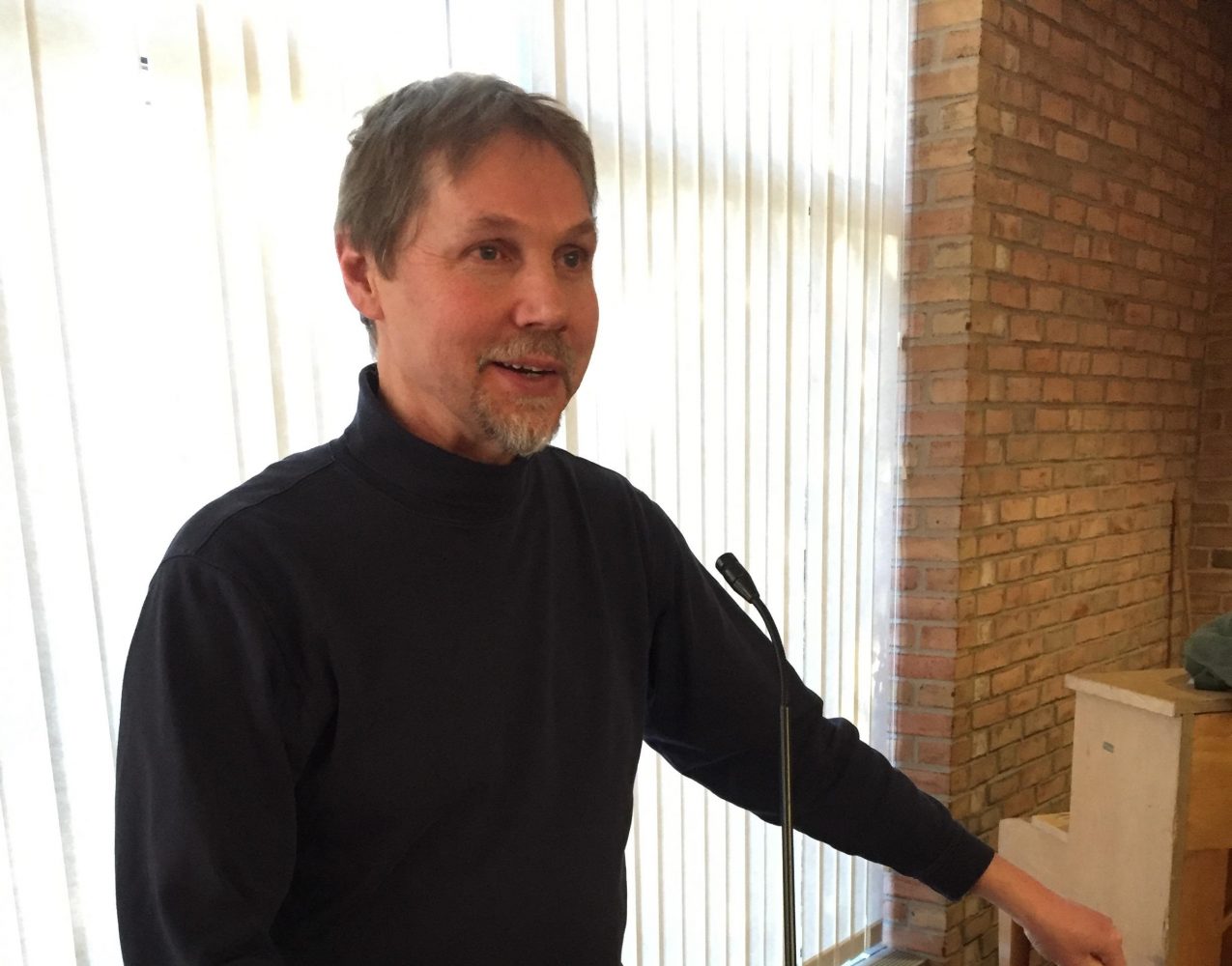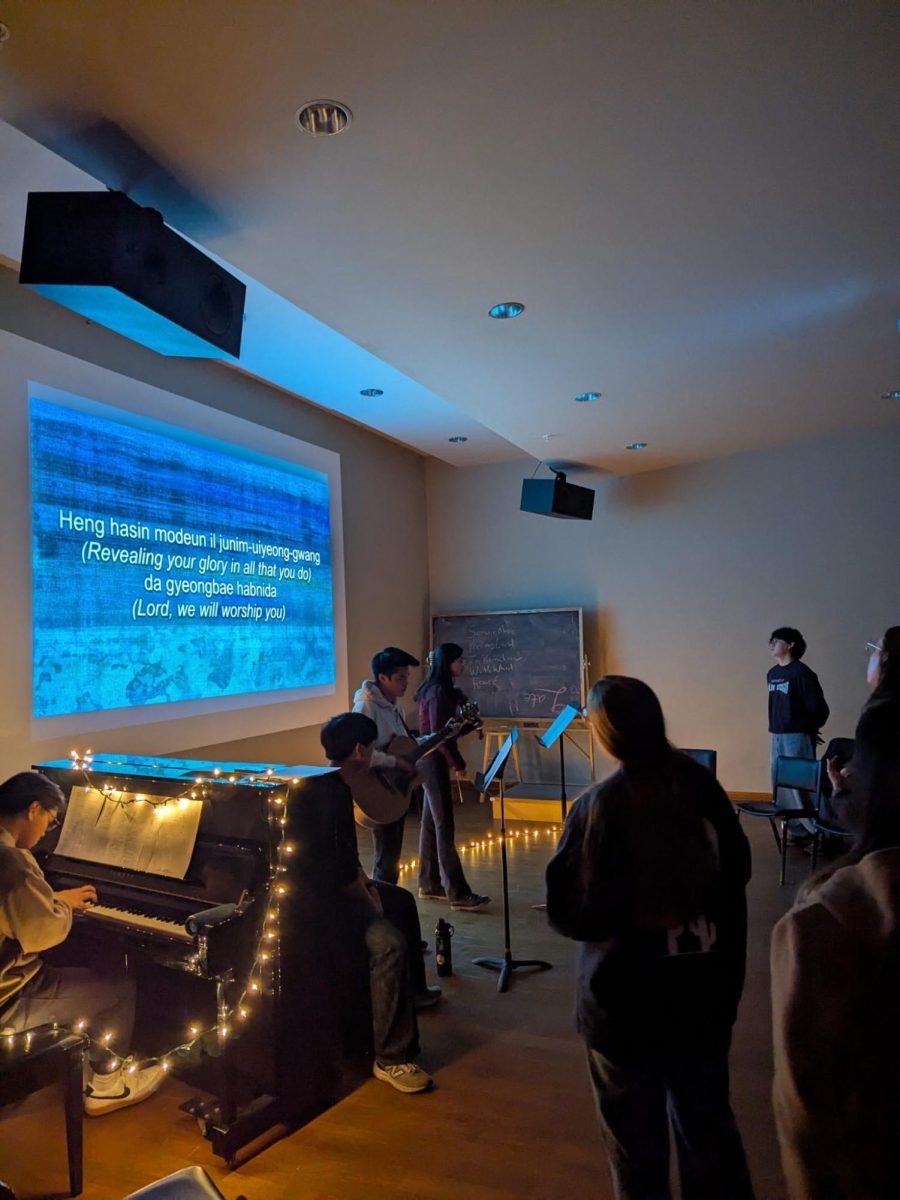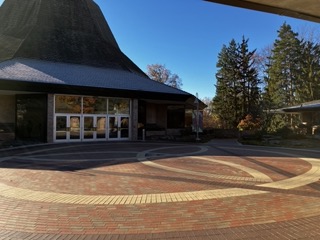According to Ted Lewis, “If we understand God’s style of bridging into the realm of humanity as invitational, non-defensive and non-coercive, we can imitate that as we engage others with differing views.” Lewis is a communications consultant at the Center for Restorative Justice & Peacemaking at the University of Minnesota, and last Friday he gave a presentation to the Calvin community entitled “Restorative Conversations in a Divisive Age: Exploring Biblical Foundations to Bridge-Building Styles of Communication.” The presentation took place in the Meeter Center Lecture hall and was attended by Calvin students and faculty, as well as various members from the local community.
Lewis’ primary contention was that the general incapacity to engage in productive and edifying debates in today’s society is due to a “climate of fear” that suppresses our abilities to communicate with each other.
“There’s a general paralysis in the area of civil discourse,” said Lewis when asked about this issue. He claimed that too often people are so concerned with communicating their own ideas about any given topic that they fail to listen to what the other person has to say. This lack of hearing is an immediate issue because when we approach conversations in this manner , we are not really exchanging ideas or thoughts at all. Not only that, Lewis argued that there is a deeper humanitarian issue happening in these interactions as well.
Lewis believes that when conversing with those of differing opinions, the primary thing we do incorrectly is associate the person with the issue. Instead of viewing the other person as a human being who has an opinion on a certain topic, we begin to view them as that opinion. In doing so, that person herself becomes the opposition, rather than the belief that she maintains. This, when engaged in debate, inadvertently causes our goals to shift from understanding the other person’s argument and conveying our own, to invalidating them and their worldview.
According to Lewis, there are two primary symbols of communication dynamics: bridges and walls. In our disagreements, we can either build bridges of communication, understanding and acceptance, or walls of stubbornness, rudeness and invalidation. Lewis argued that the proper Biblical approach is one of building bridges, which can specifically be seen in how God has communicated with his people throughout the narrative of Scripture.
One primary example of this that Lewis gave in his lecture is how Christ came to earth. Paul, in his letter the the church at Philippi said, “though he [Christ] was in the form of God, [he] did not regard equality with God as something to be exploited, but emptied himself, taking the form of a slave, being born in human likeness. And being found in human form, he humbled himself and became obedient to the point of death — even death on a cross.” God built the ultimate bridge of communication when He himself became like us that we might be in communion with him. If we truly want to be Christ-like, Lewis argued, we should be imitating this bridge-building style of communication when conversing with others — approaching in a invitatory and non-coercive manner.
This has serious implications for the Calvin College community- people with a rich history of political and social diversity. Lewis encouraged us to recognize what he referred to as an “integrity between the means of going about something and the end goal.” Peaceful processes lead to peaceful outcomes, violent processes lead to violent outcomes and disempowering processes leads to disempowering outcomes. If we can converse with those who disagree with us in civil, bridge-building ways, the outcome of these conversations will be healthy and productive, even if both parties still disagree at the end.
Lewis contended that our approach should be “having a servanthood perspective where it’s not about me advancing, but rather an attempt to understand and value the humanity of the other person.”






